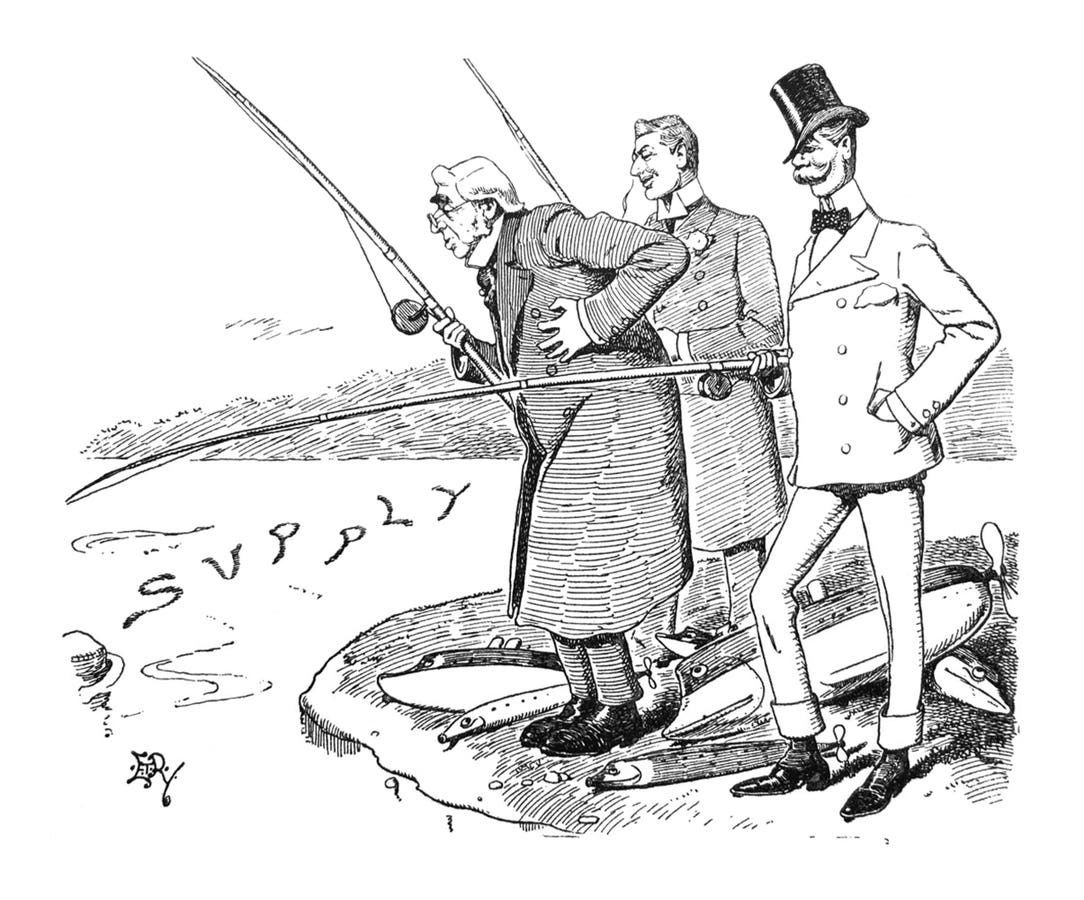That would be a departure from the Carter Doctrine... but I think what he's really doing is shaking the trees. A lot of countries contribute to maritime security in those straits and others hot spots in that part of the world- whether or not they contribute their "fair share" is also an important question.I thought this part was particularly interesting.
Trump Questions U.S. Defense of Oil in Strait After Iran Attacks
-
Please take a moment and update your account profile. If you have an updated account profile with basic information on why you are on Air Warriors it will help other people respond to your posts. How do you update your profile you ask?
Go here:
Edit Account Details and Profile
You are using an out of date browser. It may not display this or other websites correctly.
You should upgrade or use an alternative browser.
You should upgrade or use an alternative browser.
Two oil tankers hit in Gulf of Oman
- Thread starter nittany03
- Start date
That would be a departure from the Carter Doctrine... but I think what he's really doing is shaking the trees. A lot of countries contribute to maritime security in those straits and others hot spots in that part of the world- whether or not they contribute their "fair share" is also an important question.
I question if Twitter is the best venue to persuade other countries to 'contribute' more.
Granted only limited interior shots but can’t imagine space for 35 crewYou’re both wrong.
Oh, I don't think there's much question. (I know what you mean.)I question if Twitter is the best venue to persuade other countries to 'contribute' more.
I don’t think @CommodoreMid needs to reference YouTube videos of the platform she’s NATOPS qualified in prior to calling bullshit on how many people it can hold.Granted only limited interior shots but can’t imagine space for 35 crew
I don’t think @CommodoreMid needs to reference YouTube videos of the platform she’s NATOPS qualified in prior to calling bullshit on how many people it can hold.
Can confirm. The plane doesn't hold 35, and CommodoreMid isn't an idiot.
Oil is a commodity whose price is determined by international markets, if the price of oil rises it rises everywhere to include here. So while most of the oil that goes through the Strait of Hormuz goes elsewhere if it is shut down then it affects us almost as much as the folks who get their oil through there. And that remains a fact even if we become 'energy independent' in the next few years.
I understand that argument - however it has been overcome by the fact that the US and Canada as a unit now produce enough hydrocarbons to supply themselves.
The counter-argument is this: If the Strait get shut down and/or KSA and Iran take out each other's oil terminals, 20 million BDP comes off line and the price of oil skyrockets. Since oil is a commodity and subject to import / export controls, the US re-institutes the oil export ban, effectively decoupling from global oil markets. It did not work last time as US consumption outpaced US domestic supply, but with the ability of shale to ramp up quickly (financing and refinery capacity permitting), North American could be energy self sufficient while the rest of the world has a significant problem.
Its an academic exercise for now, but that is where my bet is. Faced with $6, $8, $10 per gallon gasoline and resulting havoc on the economy, there would be significant political pressure to go this route.
The counter-argument is this: If the Strait get shut down and/or KSA and Iran take out each other's oil terminals, 20 million BDP comes off line and the price of oil skyrockets. Since oil is a commodity and subject to import / export controls, the US re-institutes the oil export ban, effectively decoupling from global oil markets.
Its an academic exercise for now, but that is where my bet is. Faced with $6, $8, $10 per gallon gasoline and resulting havoc on the economy, there would be significant political pressure to go this route.
Um, no. How on earth would the price of oil at home become 'decoupled'? What is there to prevent the oil companies from charging the same price as the rest of the world? It's a free country after all! And it isn't like the government could force them to sell at a set price, because we are...a free country. Unless you want to impose price controls, which is stepping pretty far into socialist territory and probably illegal.
Seriously, I have no idea how any of what you suggest would work in the real world.
Goodfou
Well-Known Member

Price Controls by Another Name
Congress and the Trump Administration are considering proposals that would set U.S. drug prices equal to the prices paid in arbitrary countries, or proposals that would mandate drug price arbitration. These policies will burden the U.S. health care system with price controls, just by another name.
 www.forbes.com
www.forbes.com
I understand your thought process but if gas prices go much above $5, and certainly if it gets anything close to $10, our knee jerk reactionary government will absolutely respond to the crisis with some sort of price controls, whether by name or otherwise.
During the 1973 OPEC oil crisis were OPEC refused to sell oil to the U.S., President Nixon imposes price controls on oil.Um, no. How on earth would the price of oil at home become 'decoupled'? What is there to prevent the oil companies from charging the same price as the rest of the world? It's a free country after all! And it isn't like the government could force them to sell at a set price, because we are...a free country. Unless you want to impose price controls, which is stepping pretty far into socialist territory and probably illegal.
Seriously, I have no idea how any of what you suggest would work in the real world.
The government forces 18-year-old males to register with the selective service, forces everyone to purchase healthcare, and forces us to pay income tax, etc. Why would that be different? We haven't been a free country for a long time, because our government (and the people) long ago lost the understanding that government should only be concerned with protecting individual rights.And it isn't like the government could force them to sell at a set price, because we are...a free country.
You can argue we're less oppressed/restricted/controlled than the other 192 recognized countries, but we are not truly free.
Full disclosure: I paid zero income tax in 3 of the last 13 years.

Price Controls by Another Name
Congress and the Trump Administration are considering proposals that would set U.S. drug prices equal to the prices paid in arbitrary countries, or proposals that would mandate drug price arbitration. These policies will burden the U.S. health care system with price controls, just by another name.www.forbes.com
Those proposals aren't price controls by any name, they are proposals for how much Medicare and Medicaid pay for medicine which influence but do not control the market for medicinces nationwide. So yeah, nice try...but not price controls.
I understand your thought process but if gas prices go much above $5, and certainly if it gets anything close to $10, our knee jerk reactionary government will absolutely respond to the crisis with some sort of price controls, whether by name or otherwise.
The only real lever the government can exercise right now is to release oil from the Strategic Petroleum Reserve but that is for emergencies. While supplies have been released before to help with supply and prices, particularly after Hurricane Katrina, it is only a 35 day supply for the entire country and would have limited impact.
I'm not even sure price controls legal right now, and they would have secondary and tertiary effects far beyond than the short-term benefit of lowering gas prices. It would distort the economy in ways that would have long-term and adverse impacts far beyond the price you pay at the pump, that should be evident to anyone who knows anything about the last time we imposed price controls in the 70's under Nixon.
Then there is the obvious question folks who talk about price controls don't seem to have an answer for, what if the oil companies simply refuse to sell? Is the government going to force them? They might just slow down or even halt production until the price controls are lifted. While American companies are generally patriotic their bottom line is the most important thing to them, they are companies after all.
During the 1973 OPEC oil crisis were OPEC refused to sell oil to the U.S., President Nixon imposes price controls on oil.
Nixon imposed price controls in 1971, two years before the oil embargo started in 1973. The price controls were imposed because the post-war Bretton Woods system and its gold standard was causing serious strain on the dollar and our economy, with foreign currency reserves alone at surpassing the value of our entire gold reserves, not counting our domestic obligations. Coupled with the fact that post-war US oil production peaked in 1970 we were starting to have gas and oil shortages because our domestic production and limited imports were not keeping up with demand. All before the oil embargo made things worse.
I don't think anyone who lived during the '70's yearns for a return of stagflation and the economic malaise that we endured back then, not to mention the horrible fashions and disco music.
I was just commenting about you’re saying they were illegal. Besides Nixon’s price controls, there were price controls during WW1 & WW2.Unless you want to impose price controls, which is stepping pretty far into socialist territory and probably illegal.
While they may not be a good move, there is certainly a precedent and they are legal. (Unless Trump does them, then they are obviously illegal, impose in Congress’s powers and immoral done only to enrich himself and the wealthy...)
The government forces 18-year-old males to register with the selective service, forces everyone to purchase healthcare, and forces us to pay income tax, etc. Why would that be different? We haven't been a free country for a long time, because our government (and the people) long ago lost the understanding that government should only be concerned with protecting individual rights.
Ah, the evil income tax and its horrible side effect of [partially] funding a functioning government! Damn Eisenhower and his autobahns!
The government can and does impose quite a few a things on the American people but there really isn't a whole lot of direct government intervention in everyday business. The government certainly influences things to to a great degree, the economy through the Federal Reserve and regulation, but direct government intervention in business policy and prices is pretty limited.
A law could certainly be passed allowing for price controls, I am not aware of an existing one and the one Nixon used is no longer law, but I wouldn't guarantee its passage or it passing constitutional muster.
You can argue we're less oppressed/restricted/controlled than the other 192 recognized countries, but we are not truly free.
I am pretty sure folks are pretty 'free' to do whatever the hell they want in Puntland and Somaliland...if they survive long enough, good luck!
But hey, FREEDOM!

An awful lot of mental gymnastics going on in this thread in order to get to a place where you can write off the free flow of trade in a part of the world that happens to be complicated. We should all be comfortable with the strategic concept that freedom of the seas and open markets is a universal good and that American naval power can and should be used to ensure that it continues.
